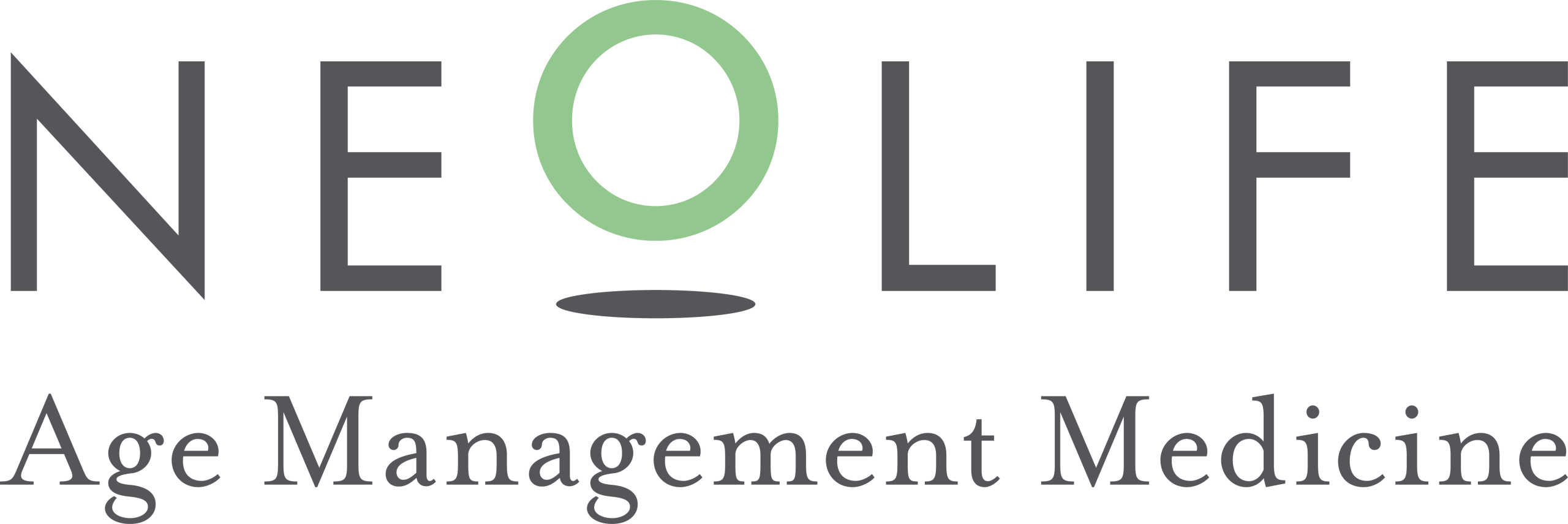All the scientific associations related to the menopause favor the use of Hormone Replacement Therapy: this includes the Spanish Association for the Study of Menopause.
A study published in the British Medical Journal has concluded that women treated with Hormone Replacement Therapy have a lower mortality (40% reduction in mortality), risk from heart failure and myocardial infarction without any perceivable increase in the risk of breast cancer, thromboembolism or stroke.
Neolife medical management
At Neolife we advocate in favor of the most avant-garde programs of so-called Age Management Medicine, or “Preventive Anti-ageing Medicine”, with the aim of preventing age-related diseases and maintaining a better quality of life for all despite the passage of time.

To this end, our protocols are based on the determination and assessment of numerous biomarkers, which aim to identify early risk factors and define the starting point for a number of proactive strategies including implementation of the following:
- Low glycemic index diet.
- Correctly prescribed physical exercise regime.
- Specific-targeted nutritional supplementation.
- Bioidentical Hormone Replacement Therapy, if required.
- Detoxification and detoxification following alcohol poisoning.
- Sufficient sleep and rest.
- Emotional balance.
[You can read more about the foundations of Preventive Anti-ageing Medicine by clicking on this link].
Perhaps the most controversial element is Hormone Replacement Therapy (HRT). The word hormone is a buzz word for controversy. For many the word brings to the forefront multiple negative connotations at present both in and around the medical profession and most notably in our country: from hormone-enhanced athletes doped with hormones, to cancer produced through use of hormones…even amongst the medical profession, from those who are not specialists in this area (and not familiar with the recent scientific literature and medical best practice) there are continued objections to the use of hormones. It is logical, therefore, that many people continue to feel a certain amount of misgivings towards HRT.
Bioidentical Hormone Replacement Therapy delays or attenuates many of the diseases often associated with ageing.
But the reality is quite different. Hormones are responsible for multiple important physiological functions and ensure the normal functioning of our body and hormonal decline increases over time – a fact that is not disputed by any critic. Ageing causes a fall in hormone production and it is this absence of hormones that is often associated with signs and symptoms of age-related diseases such as heart disease, diabetes, Alzheimer’s, osteoporosis, sarcopenia or insomnia.
The question at this time is whether or not it is appropriate to correct hormonal deficiencies. Traditional medicine is only prepared to take action in cases wheres the disease has been diagnosed and is reluctant to act preventively; however, the Proactive Preventive Medicine approach anticipates the onset of a given disease and aims to correct the sub-optimal biomarkers concerned which, whilst not yet clear indicators of the disease, are below the values of excellence we would prefer to see. HRT is not going to stop ageing it is not a magic cure but it can delay or attenuate many of the diseases often associated with the ageing process and improve the quality of life for many who receive treatment.
But doubts continue to be raised such as, is HRT safe? Does HRT produce cancer? Does HRT really prevent the onset of diseases? Are we going to feel better if we have HRT?
Recent studies belie the incidence of breast cancer in HRT.
In terms of safety and the relationship between HRT and cancer, the current situation as presented in scientific literature concerning HRT using female hormones (estrogens and progestogens in women) is as follows:
- In 2002 the WHI study (The Womens Health Initiative) was hastily suspended following an increase in the incidence of breast cancer and thromboembolism in women receiving HRT treatment as part of the study. The general press reported this news and public alarm quickly spread causing millions of women around the world to abandon their HRT treatment during the menopause.
The situation at present, and following extensive research concerning the aforementioned conclusions, is that this study incorrectly selected women for treatment (the average age of subjects in the study was 64 with many of them being over 70. The study also incorrectly included subjects that were smokers and susceptible to other cardiovascular risk factors, as well as those who had never previously been treated with hormones). There also appears to be some misunderstanding regarding the type of hormones that should have been administered to the women (a combination of mare estrogen -Premarin- and a synthetic progesterone -medroxyprogesterone- that is responsible for the increased incidence of breast cancer amongst the subjects).
- An interesting article published in 2012 in the BMJ (British Medical Journal) focused on young postmenopausal women (45-58 years), and reported that women who were administered HRT for a period of 10 years had lower mortality (40% reduction in mortality), risk from heart failure and myocardial infarction without any perceivable increase in the risk of breast cancer, thromboembolism or stroke. Even those women who started their HRT before the age of 50 were noted to have a reduction in the incidence of breast cancer.
- Another study published in July 2013 in the American Journal of Public Health, estimated that between 2002 and 2011, a minimum of 18,601 and a maximum of 91,610 hysterectomized postmenopausal women with characteristics similar to those who participated in the WHI study, died prematurely due to the alarmist withdrawal of HRT with estrogen.
Hormone Replacement Therapy, supported by scientific associations related to menopause.
Since the WHI’s inflammatory news in 2002 to today, millions of women have lost the opportunity to prevent diseases, improve their quality of life (whether this be physical, social or intimate-personal) and reduce menopausal symptoms.
At present all the scientific associations related to the menopause favor the use of HRT: this includes the Spanish Association for the Study of Menopause (AEEM). Of course, said therapy must be properly prescribed and administered by a suitable professional to be effective.
As noted at the beginning of this document, a good Anti-ageing Medicine program does not simply focus on HRT. Our comprehensive approach to nutrition, exercise, nutritional supplements, HRT, rest, toxic detoxification (relating to alcohol poisoning) and emotional balance is what we can offer today. We await developments and advances in gene therapy and stem cells which will be the key to living healthier for longer.
